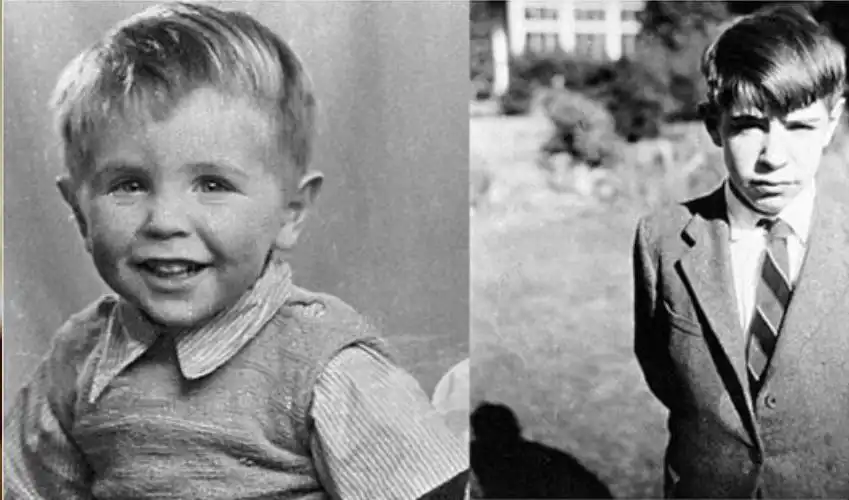Intelligence is often regarded as a gift, a beacon of hope for humanity’s progress. Yet, for those who possess extraordinary intellect, life is not always as luminous as their brilliant minds. The saddest truth about smart people is that their true value is often fully recognized only after they are gone. This sentiment resonates deeply when reflecting on the life and legacy of Stephen Hawking, one of the most remarkable minds in history.
The Early Years: A Curious Mind in an Ordinary Life

Born on January 8, 1942, Stephen Hawking’s early years gave little indication of the genius he would later become. Surprisingly, he struggled to read properly until the age of eight and was considered a perfectly average student by his peers and teachers. Nobody expected him to achieve greatness, but young Stephen harbored a quiet determination. He sought not just knowledge, but the deeper truths of existence.

By the age of 17, Hawking’s relentless curiosity and hard work paid off as he earned a place at Oxford University to study physics. He graduated with honors, marking the beginning of a journey that would change humanity’s understanding of the universe.

The Unexpected Turn: A Battle Against Time
Just as life seemed to be falling into place, tragedy struck. At the age of 21, while pursuing his PhD at Cambridge, Hawking was diagnosed with Amyotrophic Lateral Sclerosis (ALS), a degenerative motor neuron disease. Doctors gave him only two years to live. For many, such a diagnosis would signal the end of ambition, but not for Hawking.
Rather than succumbing to despair, he chose to fight—not just for his life, but for his family and his passion for uncovering the mysteries of the cosmos. “I have noticed even people who claim everything is predestined, and that we can do nothing to change it, look before they cross the road,” he once remarked, reflecting his belief in human agency even in the face of adversity.
A Mind Without Limits

Hawking’s physical abilities deteriorated over time, confining him to a wheelchair and eventually robbing him of his ability to speak without assistance. Yet, his mind remained unshackled. In fact, he credited his condition with forcing him to think more deeply and creatively. “By losing the finer dexterity of my hands,” he explained, “I was forced to travel through the universe in my mind and try to visualize the ways in which it worked.”
Through sheer willpower and intellectual brilliance, Hawking revolutionized our understanding of black holes and the origins of the universe. His groundbreaking work on Hawking radiation—a phenomenon where black holes emit energy—challenged existing scientific paradigms and cemented his place in history as one of the greatest theoretical physicists.
The Human Side of Genius

Despite his towering intellect, Hawking was not just a scientist; he was deeply human. He loved, laughed, and lived with an infectious zest for life. He married twice and had three children, balancing his family life with his relentless pursuit of knowledge.

Hawking also possessed a sharp wit and a sense of humor that endeared him to millions. From appearing on popular TV shows like The Simpsons and The Big Bang Theory to delivering motivational speeches, he made science accessible and inspiring for people across the globe.
The Tragic Irony: Recognition After Death

On March 14, 2018, the world lost Stephen Hawking. His death marked the end of an extraordinary life that defied all odds. Tributes poured in from every corner of the globe, celebrating his unparalleled contributions to science and humanity.
Yet, Hawking’s passing also underscored a poignant truth: society often fails to fully appreciate its greatest minds while they are alive. It is only in death that their achievements are celebrated widely and their struggles acknowledged. The same society that marvels at their brilliance often overlooks their humanity—their vulnerabilities, battles, and sacrifices.
A Legacy That Transcends Mortality
Stephen Hawking’s story is a testament to the resilience of the human spirit and the boundless potential of the mind. His life reminds us that intelligence is not just about solving equations or publishing papers; it is about adapting to change, overcoming obstacles, and using knowledge to make the world a better place.
As we honor Hawking’s memory, let us also reflect on how we treat the brilliant minds among us today. Do we recognize their contributions? Do we support them in their struggles? Or do we wait until it is too late?
Conclusion: The Saddest Truth About Smart People
The saddest truth about smart people is not just that they are truly appreciated only after they are gone—it is also that their brilliance often isolates them during their lifetime. Like Stephen Hawking, many face challenges that go unnoticed by those around them.
Let us learn from Hawking’s legacy by celebrating intelligence not just in its achievements but in its humanity. Let us cherish those who push the boundaries of knowledge while they are still with us, ensuring that their light continues to shine brightly in a world that desperately needs it.
Rest in peace, Stephen Hawking. The universe feels s
